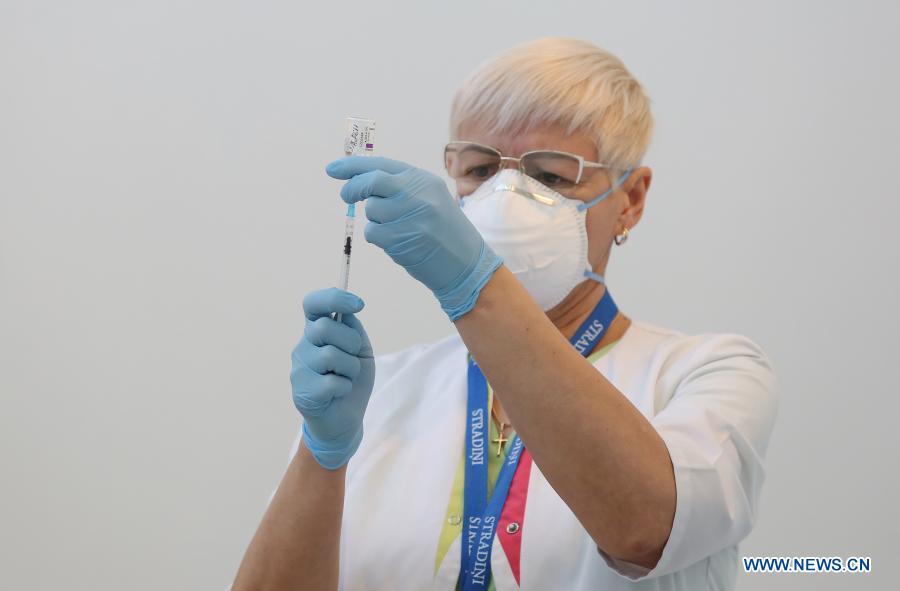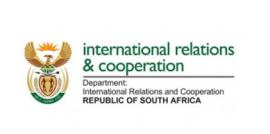
A medical worker prepares the COVID-19 vaccine at a hospital in Riga, Latvia
RIGA, Feb 12 (NNN-Xinhua) — Latvia’s top state officials whose office duties involve ensuring national security and the functioning of the state received the first dose of the coronavirus vaccine on Thursday, local media reported.
The officials getting their first dose of the AstraZeneca vaccine included President Egils Levits and Prime Minister Krisjanis Karins.
After getting the shot, Levits told reporters that he is a rational person who trusts science and experts of the World Health Organization (WHO) and the European Medicines Agency (EMA).
“We can trust them that the vaccine is safe,” the president said, adding that he feels fine after the inoculation.
“I want to lead by example to encourage a relatively large part of society who still are not sure whether they should get the jab or not,” Levits said. “I would like to urge everyone to get vaccinated so that we can resume life as normal.”
Prime Minister Karins said after getting the jab that vaccination is the small thing everyone has to do to help protect the whole population and achieve herd immunity.
“Don’t be afraid, register an appointment and go get the vaccine when your turn comes,” he said.
“The state officials’ unanimous willingness to be vaccinated is a demonstration of confidence in the safety and efficacy of the vaccines, and it will also serve as a significant encouragement for people to vaccinate in order to achieve herd immunity,” the Health Ministry said.
The vaccination of Latvia’s top state officials coincided with the start of the immunization of residents and staff of nursing homes across the country.
As the world is struggling to contain the pandemic, vaccination is underway in some countries with the already-authorized coronavirus vaccines.
Meanwhile, 242 candidate vaccines are still being developed worldwide — 63 of them in clinical trials — in countries including Germany, China, Russia, Britain and the United States, according to information released by the World Health Organization on Feb. 9. — NNN-XINHUA






